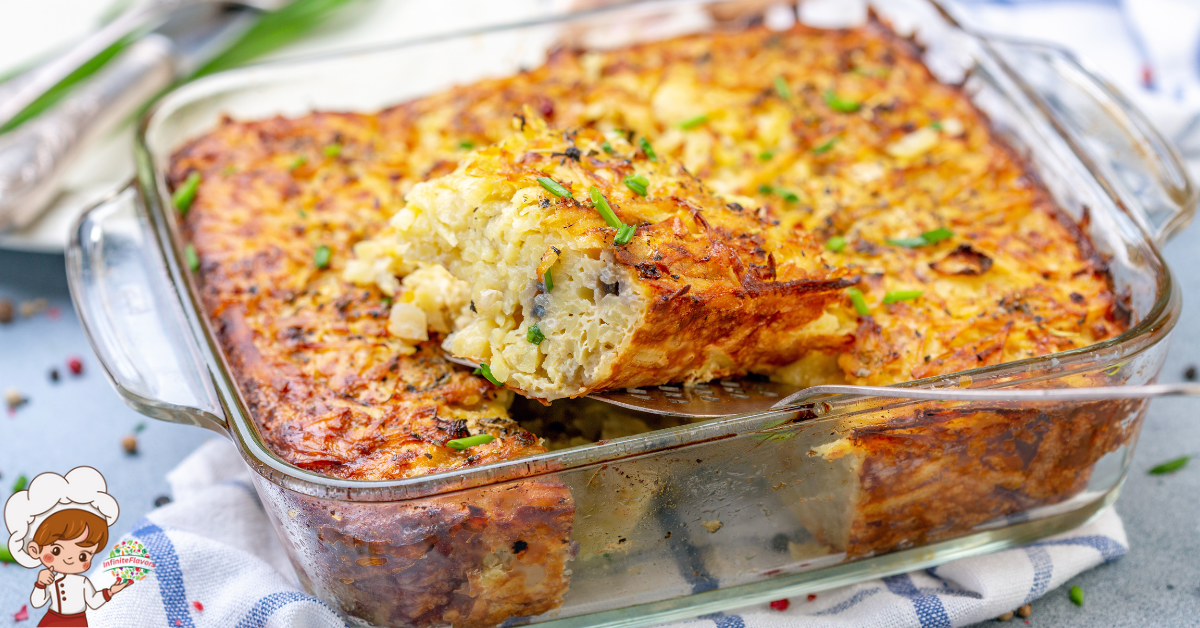The Best Gluten-Free Diet for IBS

The Best Gluten-Free Diet for IBS; Are you tired of dealing with the uncomfortable symptoms of Irritable Bowel Syndrome (IBS)? Have you ever considered the possibility that your diet could be playing a role in exacerbating these symptoms? What if I told you that making a simple change to your eating habits could potentially alleviate your IBS symptoms? It’s time to explore the connection between a gluten-free diet and IBS, and discover how this dietary approach may be the solution you’ve been searching for.
Understanding IBS and Gluten Sensitivity
Understanding the relationship between irritable bowel syndrome (IBS) and gluten sensitivity is crucial for individuals seeking relief from their symptoms. Gluten sensitivity, also known as non-celiac gluten sensitivity (NCGS), is a condition where individuals experience symptoms similar to those with celiac disease but without the characteristic intestinal damage. Gluten, a protein found in wheat, barley, and rye, is known to be the trigger for these symptoms in individuals with gluten sensitivity.
The exact causes of gluten sensitivity are not yet fully understood. However, research suggests that it may be a result of a combination of genetic, environmental, and immunological factors. Some studies have shown that individuals with a family history of gluten sensitivity or other autoimmune conditions may be more prone to developing this condition. Additionally, certain environmental factors, such as a history of gastrointestinal infections or alterations in the gut microbiota, have been associated with the development of gluten sensitivity.
When it comes to the impact of gluten on gut health, studies have shown that gluten can cause inflammation and damage to the intestinal lining in individuals with gluten sensitivity. This damage can lead to increased intestinal permeability, commonly known as leaky gut syndrome. When the gut becomes leaky, undigested food particles, toxins, and bacteria can pass through the intestinal wall and enter the bloodstream, triggering an immune response and causing symptoms such as abdominal pain, bloating, diarrhea, and fatigue.
Benefits of a Gluten-Free Diet for IBS
A gluten-free diet can provide several benefits for individuals with IBS. First, it can help reduce inflammation in the gut, which is a common trigger for IBS symptoms. Second, by eliminating gluten, digestion and absorption of nutrients can improve, leading to better overall gut health. Lastly, many individuals with IBS report that following a gluten-free diet helps alleviate their symptoms, such as abdominal pain, bloating, and diarrhea.
Reduced Inflammation in Gut
Reduced inflammation in the gut can be a significant benefit of adopting a gluten-free diet for individuals with Irritable Bowel Syndrome (IBS). Research has shown that gluten can trigger an inflammatory response in the gut, leading to symptoms such as abdominal pain, bloating, and diarrhea in people with IBS. By eliminating gluten from your diet, you can reduce gut inflammation and alleviate these symptoms.
Additionally, a gluten-free diet can help restore balance to the gut microbiome, which is essential for maintaining optimal gut health. The gut microbiome plays a crucial role in digestion, nutrient absorption, and immune function. When the gut microbiome is imbalanced, it can contribute to inflammation and worsen IBS symptoms. By following a gluten-free diet, you can promote a healthy gut microbiome and reduce inflammation in your gut, leading to improved overall digestive health.
Improved Digestion and Absorption
By adopting a gluten-free diet for IBS, you can experience improved digestion and absorption, leading to better overall digestive health. Gluten, a protein found in wheat, barley, and rye, can be difficult for some people with IBS to digest. When these individuals eliminate gluten from their diet, it can have a positive impact on their gut health.
Gluten can cause inflammation in the gut, which can disrupt the normal digestive process. This inflammation can impair the absorption of nutrients from food, leading to nutrient deficiencies. By eliminating gluten, the gut can heal and function more efficiently, allowing for improved digestion and absorption of essential nutrients. This can result in better overall digestive health and a reduction in symptoms associated with IBS.
Alleviation of IBS Symptoms
When following a gluten-free diet for IBS, you can experience significant relief from symptoms. IBS symptom management is a key aspect of improving quality of life for those with this condition. By making dietary changes and eliminating gluten, which is found in wheat, barley, and rye, you may find that your IBS symptoms become more manageable.
Research suggests that gluten can trigger inflammation and irritation in the gut, leading to symptoms such as bloating, diarrhea, and abdominal pain. By removing gluten from your diet, you can potentially reduce these symptoms and achieve better overall symptom control. It is important to work with a healthcare professional or registered dietitian when making dietary changes to ensure you are meeting your nutritional needs while managing your IBS symptoms effectively.
Identifying Gluten in Foods
To effectively follow a gluten-free diet for IBS, it is crucial to be able to accurately identify gluten in foods. This is because consuming even small amounts of gluten can trigger symptoms and worsen the condition. To help you navigate the gluten-free world, it is important to be aware of hidden sources of gluten and to know how to identify gluten-free substitutes.
Gluten can be found in many grains, including wheat, barley, and rye. However, it can also be present in other unexpected foods and products. For example, sauces, dressings, and condiments often contain gluten as a thickening agent. Processed meats, such as sausages and deli meats, may also contain gluten as fillers or binders. Additionally, some medications, vitamins, and supplements may contain gluten as well. Therefore, it is essential to carefully read food labels and look for any mention of gluten or its derivatives, such as wheat flour or malt extract.
When it comes to identifying gluten-free substitutes, there are a plethora of options available. Instead of wheat-based bread, you can opt for gluten-free bread made from alternative grains like rice or quinoa. Instead of regular pasta, you can try gluten-free pasta made from corn or lentils. Additionally, there are gluten-free flour blends available for baking, which can be used as a substitute for traditional wheat flour.
Creating a Gluten-Free Meal Plan
Creating a gluten-free meal plan can be a straightforward and effective way to manage your IBS symptoms and ensure you are following a healthy and balanced diet. When planning your meals, it’s important to focus on foods that are naturally gluten-free, such as fruits, vegetables, lean proteins, and whole grains like rice and quinoa.
To help you get started, here are some gluten-free meal ideas. For breakfast, you can enjoy a bowl of gluten-free oatmeal topped with fresh berries and a sprinkle of nuts. For lunch, try a salad with grilled chicken or salmon, mixed greens, and a variety of vegetables. As a snack, opt for gluten-free rice cakes spread with nut butter or hummus. And for dinner, consider making a gluten-free stir-fry with tofu or shrimp, colorful veggies, and gluten-free tamari sauce.
When it comes to gluten-free meal preparation, there are a few tips to keep in mind. Firstly, make sure to read food labels carefully to identify any potential sources of gluten. Look out for ingredients like wheat, barley, and rye. Secondly, be mindful of cross-contamination. Use separate cutting boards, utensils, and cookware for gluten-free foods to avoid any contamination from gluten-containing products. Lastly, consider meal planning and prepping in advance. This can help you save time and ensure you have gluten-free options readily available.
Gluten-Free Snack Ideas for IBS
For those with IBS following a gluten-free diet, there are plenty of delicious and satisfying snack options to choose from. When it comes to gluten-free snacking, you have the opportunity to get creative and explore a variety of flavors and textures. One option is to try gluten-free baking at home. Many gluten-free recipes are available online or in cookbooks, allowing you to make your own snacks from scratch. Some popular gluten-free snacks you can make include gluten-free cookies, muffins, and granola bars.
If baking isn’t your thing or you’re looking for more convenience, there are also gluten-free snack options available at restaurants and grocery stores. Many restaurants now offer gluten-free menus or have gluten-free options clearly labeled on their regular menus. You can find gluten-free snacks such as gluten-free chips, popcorn, or vegetable sticks with gluten-free dips. Nuts and seeds are also great gluten-free snack options that you can find easily in grocery stores. They are packed with nutrients and can be enjoyed on their own or mixed with dried fruits for added flavor.
When choosing gluten-free snacks for IBS, it’s important to pay attention to the ingredients and avoid any potential triggers. Some gluten-free products may still contain high FODMAP ingredients, such as onion or garlic, which can worsen IBS symptoms for some individuals. Reading labels carefully and opting for snacks with simple, natural ingredients can help you make healthier choices.
Overcoming Challenges of a Gluten-Free Lifestyle
When following a gluten-free diet for IBS, navigating the challenges of maintaining this lifestyle can be a significant adjustment. One of the biggest hurdles you may face is overcoming social and dining out challenges. Eating out can be particularly challenging because you have less control over the ingredients and preparation methods used in your meals. However, with some planning and awareness, you can still enjoy dining out while adhering to your gluten-free diet.
To overcome social challenges, it is important to communicate your dietary needs to your friends and family. Let them know about your gluten-free lifestyle and the reasons behind it. This will help them understand and support your choices. When attending social gatherings or events, it can be helpful to bring your own gluten-free snacks or dishes to ensure you have something safe to eat.
When dining out, research restaurants in advance and choose ones that offer gluten-free options or have experience accommodating special dietary needs. Call ahead to communicate your requirements and discuss any concerns you may have. When ordering, clearly communicate your needs to the server and ask questions about ingredients and preparation methods. Avoid cross-contamination by asking for your meal to be prepared separately from gluten-containing foods.
Additionally, it can be helpful to educate yourself about hidden sources of gluten and learn how to identify them on menus. Be cautious of sauces, dressings, and marinades that may contain gluten. Stick to simple, whole food options like grilled meats, fish, vegetables, and salads to minimize the chances of consuming gluten.
Tips for Long-Term Success on a Gluten-Free Diet
To ensure long-term success on a gluten-free diet, it is essential to prioritize education and preparation. By equipping yourself with knowledge and planning ahead, you can navigate the challenges and maintain a healthy and fulfilling gluten-free lifestyle. Here are some tips to help you on your journey:
- Educate yourself on gluten-free substitutes: Familiarize yourself with gluten-free alternatives for your favorite foods. Explore the wide range of gluten-free flours, pastas, and breads available in stores. Experiment with different recipes and find substitutes that suit your taste and dietary needs. Remember to always check labels for hidden sources of gluten.
- Plan your meals and snacks: Meal planning is crucial to avoid accidental gluten consumption. Plan your meals in advance and make a shopping list of gluten-free ingredients. Prepare your own meals whenever possible to have better control over the ingredients used. Also, pack gluten-free snacks to have on hand for times when you might get hungry on the go.
- Communicate with others: Maintaining a gluten-free diet doesn’t mean sacrificing your social life. Inform your friends, family, and coworkers about your dietary restrictions, so they can support you and make accommodations when needed. When dining out, research gluten-free options beforehand or call the restaurant to inquire about their gluten-free offerings.
- Join support groups or seek professional guidance: Connecting with others who follow a gluten-free diet can provide valuable support and guidance. Look for local support groups or online communities where you can share experiences, ask questions, and exchange recipes. You may also consider consulting with a registered dietitian who specializes in gluten-free diets to ensure you are getting all the necessary nutrients.
Frequently Asked Questions: The Best Gluten-Free Diet for IBS
Can a Gluten-Free Diet Cure Ibs?
A gluten-free diet may help manage symptoms of IBS, but it is not a cure. It can be effective for some individuals, but it is important to understand the limitations and consult with a healthcare professional.
Can I Still Eat Bread and Pasta on a Gluten-Free Diet for Ibs?
Yes, you can still enjoy bread and pasta on a gluten-free diet for IBS. There are plenty of gluten-free alternatives available, and you can find delicious recipes and options that won’t aggravate your symptoms.
Are There Any Medications Available to Help With Symptoms of Ibs?
There are medications available to help with symptoms of IBS, as well as natural remedies that can provide relief. It’s important to discuss these options with your healthcare provider to find the best approach for you.
Can I Eat Out at Restaurants While Following a Gluten-Free Diet for Ibs?
You can eat out at restaurants while following a gluten-free diet for IBS. However, you may face some eating out restrictions. Many restaurants now offer gluten-free options, so be sure to inquire and make informed choices.
Is It Necessary to Completely Eliminate Gluten From My Diet in Order to See Improvements in My IBS Symptoms?
To see improvements in your IBS symptoms, it may not be necessary to completely eliminate gluten from your diet. There are alternative treatments for IBS that can be effective, so it’s worth exploring different options.
Conclusion
In conclusion, a gluten-free diet can be beneficial for individuals with IBS. By eliminating gluten, which can trigger symptoms in those with gluten sensitivity, individuals may experience a reduction in digestive issues and overall improvement in their quality of life. It is important to properly identify gluten in foods and to create a well-rounded gluten-free meal plan. Though there may be challenges, with persistence and proper planning, long-term success on a gluten-free diet is achievable.








